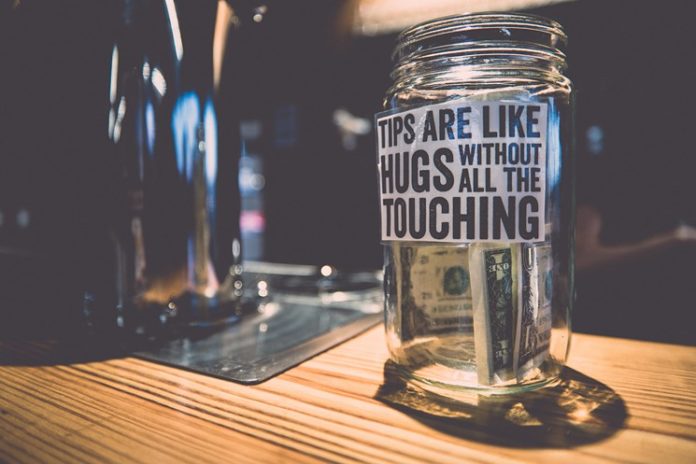
It has been a fairly standard practice in much of the Western world for hundreds of years to tip members of the service industry, or gift workers an additional amount of money beyond the cost of service as a way of showing gratitude; a gratuity. But what exact percentage is the acceptable bare minimum to leave? Does that vary depending upon the quality of service or professionalism shown? What about when workers pool tips and split them evenly, despite not necessarily working equally? What happens when a server is taxed for tips they may not have even received?
When did tipping get so complicated?
Apparently tipping became a standard practice in 17th Century Europe. When immigrants brought the practice to the United States, it was met with controversy.
“Tipping, and the aristocratic idea it exemplifies, is what we left Europe to escape,” William Scott wrote in his 1916 anti-tipping screed, “The Itching Palm.”
Then in 1966 the Fair Labor Standards Act was amended to include a below-minimum-wage provision for workers and a tip credit for employers. Effectively what used to be a gift became taxable wage. Since 1991, the federal minimum wage for tipped workers in the United States has remained at $2.13 per hour, despite a significant increase in cost of living expenses.
In addition to shortchanging workers who spend long hours on their feet serving others, employers have cottoned on to the trend of tipping creating a culture of competition amongst co-workers, when their businesses would benefit greatly from a cooperative team effort. An increasing number of restaurants across the country are switching to an anti-tipping model, in which a flat gratuity charge is added on to every customer’s bill.
Shake Shack in New York, owned by Danny Meyer, is the latest restaurant to move in this direction. Meyer cites quality of life of his workers as a primary motivating factor.
“We believe hospitality is a team sport, and that it takes an entire team to provide you with the experiences you have come to expect from us. Unfortunately, many of our colleagues — our cooks, reservationists, and dishwashers to name a few — aren’t able to share in our guests’ generosity, even though their contributions are just as vital to the outcome of your experience at one of our restaurants,” said Meyer in a public letter. “By eliminating tipping, our employees who want to grow financially and professionally will be able to earn those opportunities based on the merit of their work.”
This article (How a New York Restaurant Eliminated Bad Tippers) is free and open source. You have permission to republish this article under a Creative Commons license with attribution to the author and AnonHQ.com.





I work in the restaurant business in Sweden and I profit greatly form tips. Sweden is a country with a low tipping standard (10% or rounding of to the closest 100sek=10$) and by being part of a high service restaurant I get an additional 200$ a week. That is 30% of my paycheck and all the spending cash i need for that week. So far in Sweden, tipping is not taxed by the state since it is included under the “gifting tax” and that does not tax below 1000$. A “gratuity fee” is already included in our price. That is called the serving cost. Doing the dishes, cooking the food, ordering the produce, all that, is included in the base cost of every product that we sell. We even have diminishing return costs of several pourings of drinks and servings of entrés. We also share the tip between all the staff equally no matter how much tip they earned or how long their shift was that day. Everyone get a good deal of extra cash and everyone is happy. Especially the customers.
Am I missing something here or could you as well write that the restaurants increased the prices so that the employees finally get a salary worth working for?
In the UK all waiting staff get paid normal wages (minimum wage, sometimes more… I know because I have worked there). So why are we expected to tip ?!?! It’s not a hard job, AT ALL… BUT now all the restaurants have started adding 12.5% service charge to every fking bill. For what?!?! Supermarkets don’t charge you 12.5% service and give the tips to the cashiers do they?! So why in restaurants?!?! It’s a bloody rediculous custom